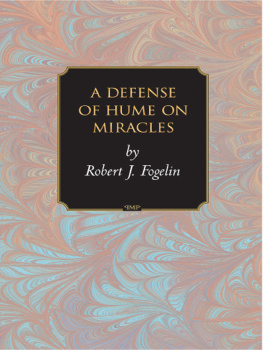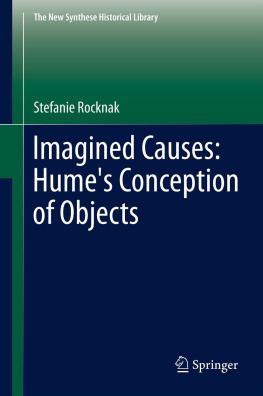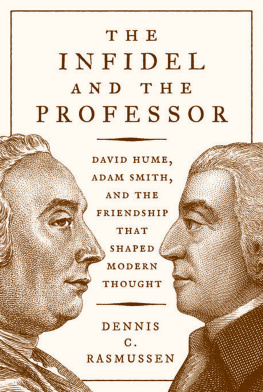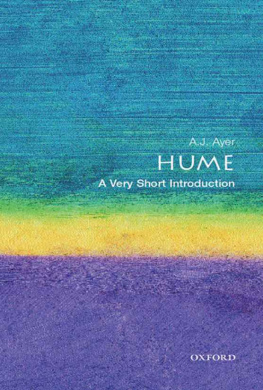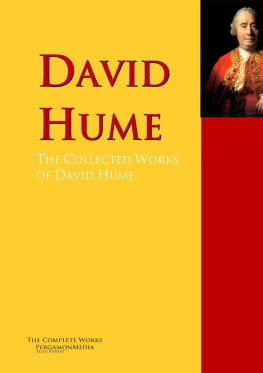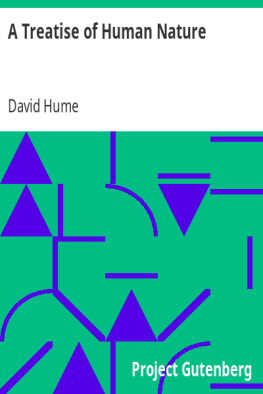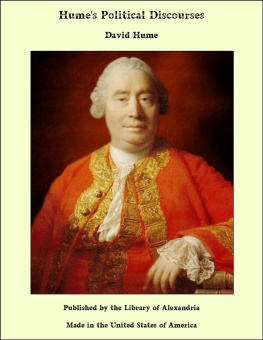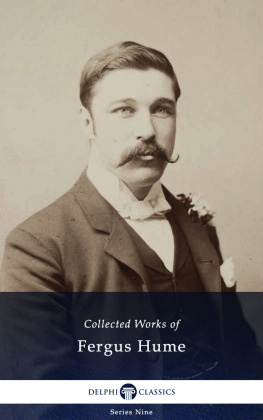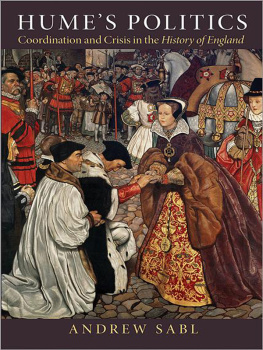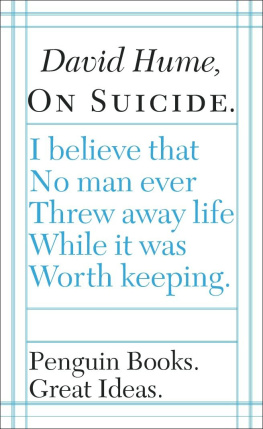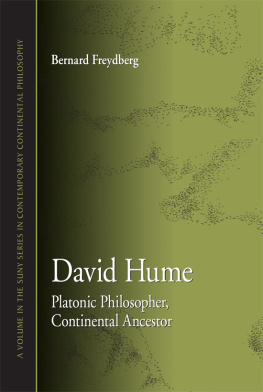Hume David - A Defense of Hume on Miracles
Here you can read online Hume David - A Defense of Hume on Miracles full text of the book (entire story) in english for free. Download pdf and epub, get meaning, cover and reviews about this ebook. City: Princeton, N.J, year: 2003, publisher: Princeton University Press, genre: Romance novel. Description of the work, (preface) as well as reviews are available. Best literature library LitArk.com created for fans of good reading and offers a wide selection of genres:
Romance novel
Science fiction
Adventure
Detective
Science
History
Home and family
Prose
Art
Politics
Computer
Non-fiction
Religion
Business
Children
Humor
Choose a favorite category and find really read worthwhile books. Enjoy immersion in the world of imagination, feel the emotions of the characters or learn something new for yourself, make an fascinating discovery.
- Book:A Defense of Hume on Miracles
- Author:
- Publisher:Princeton University Press
- Genre:
- Year:2003
- City:Princeton, N.J
- Rating:5 / 5
- Favourites:Add to favourites
- Your mark:
- 100
- 1
- 2
- 3
- 4
- 5
A Defense of Hume on Miracles: summary, description and annotation
We offer to read an annotation, description, summary or preface (depends on what the author of the book "A Defense of Hume on Miracles" wrote himself). If you haven't found the necessary information about the book — write in the comments, we will try to find it.
A Defense of Hume on Miracles — read online for free the complete book (whole text) full work
Below is the text of the book, divided by pages. System saving the place of the last page read, allows you to conveniently read the book "A Defense of Hume on Miracles" online for free, without having to search again every time where you left off. Put a bookmark, and you can go to the page where you finished reading at any time.
Font size:
Interval:
Bookmark:

Copyright 2003 by Princeton University Press
Published by Princeton University Press, 41 William Street,
Princeton, New Jersey 08540
In the United Kingdom: Princeton University Press, 3 Market Place,
Woodstock, Oxfordshire OX20 1SY
All Rights Reserved
Library of Congress Cataloging-in-Publication Data
Fogelin, Robert J.
A defense of Hume on miracles / Robert J. Fogelin.
p. cm.(Princeton monographs in philosophy)
Includes bibliographical references and index.
eISBN 978-1-40082-577-6
1. Hume, David, 17111776. 2. Miracles. I. Title. II. Series.
B1499.M5 F64 2003
212dc21 2002042466
British Library Cataloging-in-Publication Data is available
This book has been composed in Janson Text with Centaur Display
Printed on acid-free paper
www.pupress.princeton.edu
Printed in the United States of America
1 3 5 7 9 10 8 6 4 2
For my son, Eric
Crowds flocking to the grave of a Jansenist priest credited with miraculous healing powers actually ate dirt from the grave, and threatened to get out of hand. When the cemetery was barred off by the authorities, a sign appeared inscribed:
De par le roi dfense Dieu
De faire miracle en ce lieu.
(By order of the king, God is forbidden to perform miracles in this place.)
Encyclopedia of Philosophy, Enlightenment
Contents
Preface
A NUMBER OF PEOPLE HAVE provided both encouragement and help in the creation of this work. Walter Sinnott-Armstrong read an early version and made a number of suggestions that clarified the project. The two (no longer anonymous) readers, Don Garrett and David Owen, are both distinguished Hume scholars. Together they saved me from a number of embarrassing gaffes and also pointed out important ways in which my reading of Hume and my defense of his views could be made stronger. Harry Frankfurt provided assistance of a different kind: Hesitant as he was about accepting my reading of Hume, and hardly enthusiastic about Humes argument itself, his questions forced me to address those who are not already converts to Humes position. James Fieser, a prodigious scholar, tracked down the exact sources of some obscure eighteenth-century arguments attacking Hume that I cite. The epigraph is a gift from Roy Sorensen.
I would also like to thank Ian Malcolm and Harry Frankfurt for seeing this project through the Princeton University Press. Florence Fogelin, Jane Taylor, and the Princeton University Presss Lauren Lepow performed wonders in civilizing the manuscript. I wish to thank the Oxford University Press for allowing me to reprint in its entirety section 10 of Humes Enquiryconcerning Human Understanding.
This project was supported by the research funds associated with my holding the Sherman Fairchild Professorship in the Humanities at Dartmouth College.
Abbreviations
THROUGHOUT THE BOOK references to Humes Enquiry concerningHuman Understanding are to the 1999 Oxford edition, edited by Tom L. Beauchamp. Citations to this text have the following form: (EHU, section.paragraph). For example, (EHU, 10.4) refers to section 10, paragraph 4 of the Enquiry. References to Humes Treatise of Human Nature are to the 2000 Oxford edition, edited by David Fate Norton and Mary J. Norton. Citations to this text have the following form: (THN, book.part.section.paragraph). For example, (THN, 1.4.5.35) refers to book 1, part 4, section 5, paragraph 35 of the Treatise. This method of abbreviation reflects that used by the editors of these volumes.
Introduction
On my return from Italy, I had the mortification to find all England in a ferment, on account of Dr. Middletons Free Enquiry, while my performance was entirely overlooked and neglected.
David Hume, My Own Life
THE FULL TITLE OF Thomas Middletons Free Inquiry is A FreeInquiry into Miraculous Powers, Which are supposed to have subsistedin the Christian Church, From the Earliest Ages through severalsuccessive Centuries. It is an anti-Papist tract intended to show that Christian miracles did not continue into post-Apostolic times and that, for this reason, none of the later miracles claimed in support of the Roman Catholic Church should be acknowledged. When it appeared in 1749, Middletons work caused a sensation, whereas David Humes recently published Enquiry concerning Human Understanding (1748), including its own examination of miracles, was, as he ruefully reports, entirely overlooked and neglected. With time, the roles have reversed. Middletons work (somewhat sadly) has fallen into obscurity, while Humes discussion of miracles continues to attract serious attention.
Humes essay Of Miracles appears as section 10 of his Enquiryconcerning Human Understanding. Hume had originally planned to include a discussion on this topic in his Treatise ofHuman Nature but, for reasons of prudence, decided not to do so. It appears in the Enquiry as one of two sections on religious matters. The second, which follows it, is titled Of a particular Providence and of a future State. Neither essay is friendly to the cause of religion. Both seem intended to be provocative. If so, at least the essay on miracles has succeeded admirably. For more than two centuries it has been an object of vigorous defense and equally vigorous (often abusive) attack.
Hume, whose confessed ruling passion was a love of literary fame, would surely be pleased by this continuing attention, but I think he would also be perplexed by the wide range of competing interpretations of his position concerning miracles. Without making claims for originality on any particular point, I will attempt to provide a coherent readingsomething like a narrativeof the way the text unfolds. This is the first and primary task of this work.
My exposition of Humes position concerning miracles turns crucially on rejecting what I take to be two common misreadings of the textmisreadings that, in various ways, feed on each other. The first misreading is that, in part 1 of his essay on miracles, Hume maintains that no testimony could ever be sufficient to establish the occurrence of a miracle. Hume does not say this in part 1. Indeed, Hume nowhere asserts this, though in part 2 he does say, Upon the whole... it appears, that no testimony for any kind of miracle has ever amounted to a probability, much less to a proof (EHU, 10.35, emphasis added). The second common misreading of the text is that in part 1 Hume presents what he takes to be an a priori argument sufficient by itself to establish his fundamental theses concerning the status of testimony in behalf of miracles. This, I will argue, is false. Nor is part 2 simply an add-on containing supplementary a posteriori considerations that also bear on the topic of miracles. Part 2 is essential for the completion of the argument begun in part 1. The second task of this work is to make good these interpretive claims.
The third task is to respond specifically to attacks that Humes treatment of miracles has encountered in recent literature. This work was provoked in part by these misguided, often ill-tempered, bashings. Its overarching goal is not, however, to engage in counterpolemics, but rather to show that Humes treatment of miracles, when properly understood, exhibits a level of richness, subtlety, coherence, and force not generally appreciated.
The Structure of Humes Argument
Standards for evaluating testimony. Hume opens his examination of miracles with a general discussion of beliefs founded on testimony. He then moves quickly to apply these reflections to the special case of miracles. Perhaps Hume moves too quickly, for many commentators pay insufficient attention to these opening general reflections. Here we will proceed more slowly.
Font size:
Interval:
Bookmark:
Similar books «A Defense of Hume on Miracles»
Look at similar books to A Defense of Hume on Miracles. We have selected literature similar in name and meaning in the hope of providing readers with more options to find new, interesting, not yet read works.
Discussion, reviews of the book A Defense of Hume on Miracles and just readers' own opinions. Leave your comments, write what you think about the work, its meaning or the main characters. Specify what exactly you liked and what you didn't like, and why you think so.

